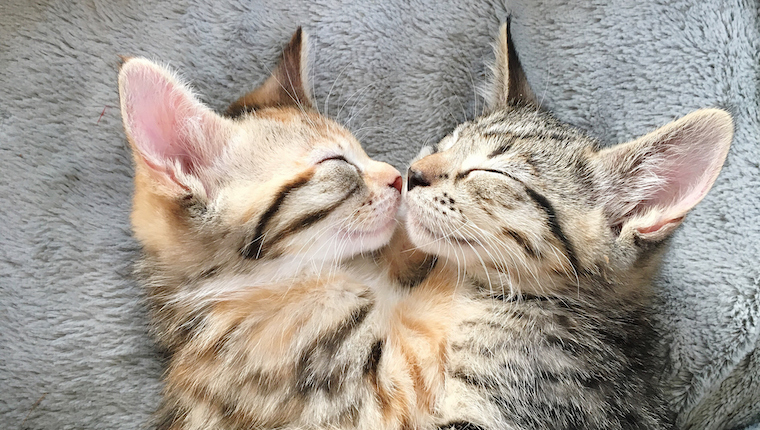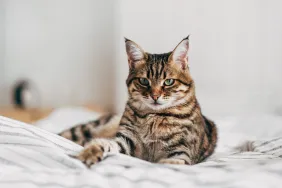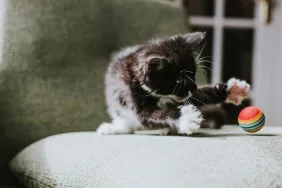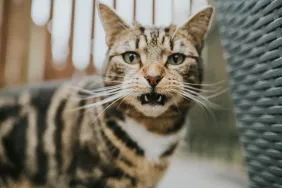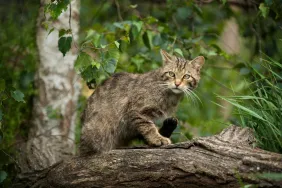Cats have a reputation for living life on their own terms, and most species are solitary creatures. But others, including lions and domestic cats, tend to live in groups. According to a new study, biological and evolutionary factors might explain cat cohabitation and why some are better at it than others.
How Hormones Affect Cats’ Behavior
In research published in the journal PLOS ONE, scientists at Azabu University in Japan suggest cats’ hormones and gut microbiomes could influence how felines interact and cohabitate with one another, despite their predisposition to solitude.
For instance, researchers found cats with lower levels of cortisol and testosterone – two hormones associated with aggression – share space and food with other cats more frequently. Those with more testosterone and cortisol were less likely to interact with other felines. Cats with more testosterone were also more likely to try to escape.
The scientists had expected as much. But they were surprised to find high levels of oxytocin – a hormone associated with affection and bonding – did not correlate with being more tolerant or friendly. In fact, the opposite was true. Cats with higher oxytocin levels were less likely to interact with others.
In other species, including dogs, oxytocin helps individuals bond and form groups. But researchers think cats might not be able to form tight-knit groups because each feline sees the others as outsiders.
The oxytocin observation also suggests hormones might not influence all species the same.
How Cats Learned to Live Together
Scientists think domestic cats may have developed their ability to cohabitate when they self-domesticated. Tolerating fellow felines was worth it if it meant receiving food from humans.
Previous research supports this idea. One study showed that European wildcats had higher cortisol levels than feral cats.
Maren Huck, a cat expert and senior lecturer at the University of Derby who was not involved in the study, told NBC News that the findings underscore the fact that cats aren’t as socially inclined as other domestic animals.
Nonetheless, Huck said, cats can tolerate and even enjoy others’ company. Hence, the tendency for domestic cat cohabitation. Whether they’ll thrive better alone or with others depends mainly on their nature.
